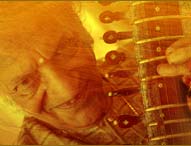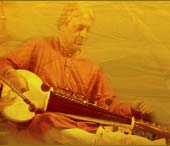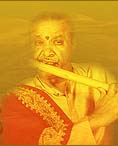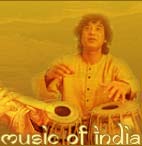Born on: February 4, 1922
Born In: Gadag, Karnataka
Died on: January 24, 2011
Career: Classical Singer
Nationality: Indian
A recipient of the Bharat Ratna award, the highest civilian award of the country, Pandit Bhimsen Joshi was a very famous classical singer of the country, much renowned for his Khayal form of singing as well as for his popular renditions of bhajans and abhangs. Despite being born in a small town, Pandit Bhimsen Joshi grew up to become one of the most prolific singers of the country. His life has been an inspiration for many. It was due to his sheer hard work, perseverance and determination that he scaled to newer heights, thus inspiring many to follow his footsteps. His contribution in the field of music has been immense. Read this biography of Pandit Bhimsen Joshi, one of the most prolific exponents of Hindustani classical music, to know more about his life.
Early Life
Bhimsen Joshi was born in the town of Ron in the Gadag District in northern Karnataka state of India. He was the eldest of the 16 siblings. His father, Gururaj Joshi, was a school teacher. Bhimsen Joshi lost his wife early and was raised under the guidance of his step mother. Bhimsen Joshi's bent towards music was seen since his childhood, as he laid his hand on a 'tanpura' used by his 'Kirtankar' grandfather, which had been kept away from his gaze at home. Such was his attraction towards music that just a procession of bhajan singers or the sound of the 'azaan' coming from a nearby mosque was enough to draw him out of house. His father, however, disliked this and forbade young Joshi's moving out from the house. At the tender age of 11, Pandit Bhimsen Joshi left home and traveled to Gwalior to learn music in the traditional Guru - Shishya style (Teacher - Disciple). He enrolled in Madhava Music School, a school run by Maharajas of Gwalior, with the help of famous sarod player Hafiz Ali Khan. Thereafter he traveled for three years in the cities of North India, including Delhi, Kolkata, Gwalior, Lucknow and Rampur, to find a suitable Guru. Eventually, his father succeeded in tracking him down in Jalandar and brought young Bhimsen back home. In the year 1936, a renowned musician named Rambhau Kundgolkar, popularly known as Sawai Gandharva decided to teach Bhimsen Joshi, the nuances of Hindustani Classical Music. He stayed with Gandharva in the traditional guru-shishya (teacher-student) style, gaining knowledge of music from his master and performing odd-jobs at the house. This time around, another renowned vocalist from the Kirana Gharana, Gangubai Hangal, was a co-student of Bhimsen. Till 1940, Bhimsen Joshi continued his training with Sawai Gandharva.
Career
Bhimsen Joshi's first live performance was at the age of 19. At the age of 20, he released his first album which was a collection of devotional songs in Hindi and Kannada. Later in 1943, he moved to Mumbai and started working as a radio artist. The 1946 concert which he had conducted to pay a tribute to his guru Sawai Gandharva on his 60th birthday was appreciated by both audience and his guru. Since then, there has been no looking back and he has performed at various venues and released many albums, which have been really liked by music lovers. Joshi has added his own distinctive style to Hindustani Classical music, excelling in gamakar, meend and tanakriya and adapting characteristics from other gharanas to create a unique vocal idiom. His performances were marked by spontaneity, accurate notes, dizzyingly-paced taans which made use of his exceptional voice training, and a mastery over rhythm.
Primarily a purist of Hindustani Classical Music, some of Joshi's more popular ragas include Shuddha Kalyan, Miyan Ki Todi, Puriya Dhanashri, Multani, Bhimpalasi, Darbari, and Ramkali. His devotional songs in Kannada and Marathi have been immensely admired. Pt Bhimsen Joshi's most popular and memorable performance was the song "mile sur mera tumhara', the song meant for national integration. He was also featured in the album. Another patriotic song for which Pt Bhimsen Joshi made significant contribution was A. R Rahman's Jana Gana Mana released on the occasion of 50th year of Indian Republic. He has given his voice to many songs that were a collaboration of other pandits and masters of classical music. His albums include singers like Hariprasad Chaurasiya, Pandit Ravi Shankar and Dr. Balamurali Krishna. As far as playback singing is concerned, Joshi sang for several films, including Basant Bahar (1956) with Manna Dey, Birbal My Brother (1973) with Pandit Jasraj, and Kannada films like Sandhya Raaga and Nodi Swami Naavu Irodhu Heege. He also sang for the films Tansen (1958) and Ankahee (1985).
Contribution to Music
Pandit Bhimsen Joshi had sung in various national and international music concerts and had helped the world to acknowledge the beauty of Hindustani classical music. In the memory of his Guru, he started an annual classical music festival known as 'Sawai Gandharva Music Festival'. It is held ever year in December in Pune where famous classical singers from all over India perform. Pandit Bhimsen Joshi was a legend in his own right whose fame is now continued through his son Srinivas, a renowned singer and composer.
Death
Pt Bhimsen Joshi died at the age of 83 years old in Pune, Maharastra in January 2011. Musicians all over the world grieved at the great loss of the world of music.
Legacy
Pandit Bhimsen Joshi had passed his legacy to his son Srinivas who himself is a renowned singer and composer. Other students of Pandit Joshi's who are famous are Madhava Gudi, Shripati Padegar,Shrikant Deshpande and Anand Bhate.
Awards & Honors
Padma Shree (1972)
Sangeet Natak Akademi Award (1976)
Padma Bhushan (1985)
National Film Award for Best Male Playback Singer (1985)
First platinum disc (1986)
Padma Vibhushan (1999)
Aditya Vikram Birla Kalashikhar Puraskar (2000)
Nadoja Award" from Kannada University (2001)
Maharashtra Bhushan (2002)
Swathi Sangeetha Puraskaram" by Government of Kerala (2003)
Karnataka Ratna (2005)
Bharat Ratna (2008)
Swami Haridas Award (2008)
Lifetime achievement award" by Delhi government (2009)
S V Narayanaswamy Rao National Award" by Rama Seva Mandali, Bangalore (2010).






